Gi tag handicrafts in India are famous for their intricate details and beauty. They are a true representation of India's skilled craftsmanship and the country’s unmatched history and beauty. But after industrialisation, traditional weavers and crafters came on the verge of losing the battle due to competition from mass-produced, machine-made goods as well as imported goods. As an honour to their skills and to preserve the handmade beauty of various art and crafts of the country, the government launched the GI tag of India, Geographical Indication Tag (GI) or GI crafts to list the GI tags product in India that depict the country’s rich culture and heritage.
In this blog, we present the list of popular GI tag handicrafts in India and highlight the Gi tags products in India that have earned this prestigious recognition.
What is GI Tag: Meaning of GI Tag
Curious about what is a GI tag in India? Below, we have provided a brief overview of the GI tag full form, GI tag kya hai, and how it is legally protected.
A GI Tag (Geographical Indication) is a label given to products that originate from a specific region and have qualities or a reputation linked to that tradition and culture. Further, we have discussed which are those GI tag products in India.
● GI Tag Full form: Geographical Indication
GI stands for Geographical Indication, a term that identifies products as originating from a particular place, with unique qualities due to its geographical location. Explore the handicraft GI tag list below.
● Definition
A Geographical Indication (GI) protects the uniqueness of a product by indicating that it comes from a specific region, and its quality or characteristics are influenced by the area's environment and culture.
● Legal protection under
GI tags or GI crafts provide legal protection, and prevent unauthorized use of the name or product by others, ensuring that only producers from the designated region can use it.
Why GI Tag Matter: How GI Tag Works
The primary goal of a GI tag handicrafts in India is to protect the unique identity of products linked to a particular region. It helps by:
● Authenticity: Maintaining the cultural and historical value of the product.
● Economic Benefits: Boosting income for local producers and artisans by protecting them from counterfeit products.
● Consumer Trust: Helping consumers identify genuine products with unique qualities.
● Preservation of Heritage: Protecting traditional practices, craftsmanship, and regional specialities.
How Many GI Tags in India: Famous GI Tag Product List in India
|
Product Name |
State |
Year of GI Tag |
|
Banarasi Saree |
Uttar Pradesh |
2009 |
|
Kanchipuram Silk |
Tamil Nadu |
2005–2006 |
|
Chanderi Fabric |
Madhya Pradesh |
2005 |
|
Muga Silk |
Assam |
2006 |
|
Darjeeling Tea |
West Bengal |
2003 |
|
Alphonso Mango |
Maharashtra |
2018 |
|
Bikaneri Bhujia |
Rajasthan |
2010 |
|
Hyderabadi Haleem |
Telangana |
2010 |
|
Pashmina Shawl |
Jammu & Kashmir |
2008 |
|
Madhubani Paintings |
Bihar |
2005 |
|
Blue Pottery of Jaipur |
Rajasthan |
2008 |
|
Channapatna Toys |
Karnataka |
2006 |
|
Kondapalli Toys |
Andhra Pradesh |
2006–2007 |
What is a Geographical Indication Tag (GI Tag)
Wondering what is Gi tag full form? Geographical Indication Tags or GI Tags are labels or signs given to particular items that refer to their origins in a particular region, town, or nation.
15 Handicrafts of Indian States That Got GI Tag in Recent Years
1. Banaras Brocades and Sarees
Belonging to Uttar Pradesh, the exquisite Banaras brocade sarees made their way to the GI tag list in the year 2021. These sarees are made of finely woven silk and embellished with elaborate motifs, that give these sarees their weight. These sarees feature unique Mughal-inspired patterns and elements, such as the elaborate floral and foliate motifs found in Kalga and Bel.
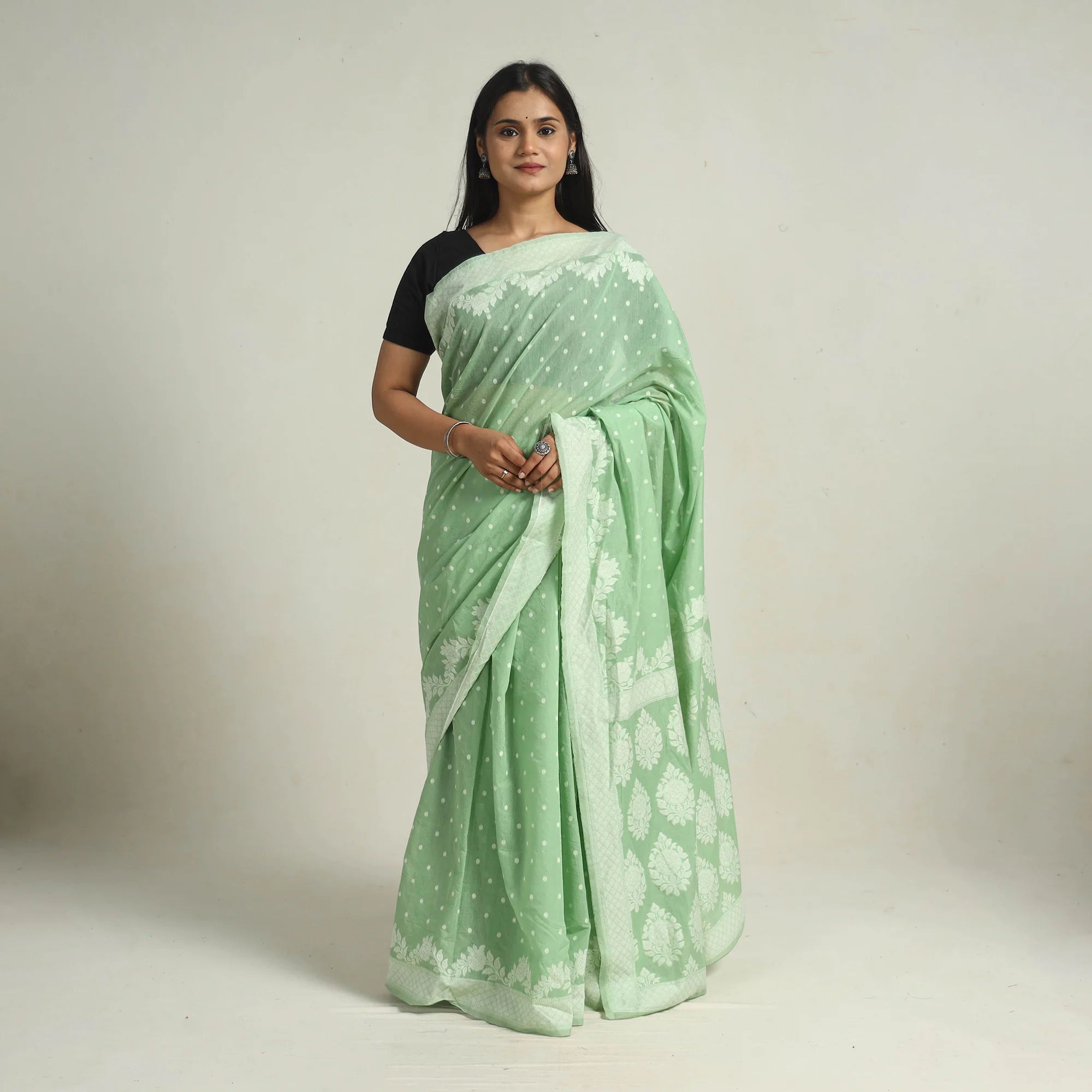
2. Kashmiri Hand-Knotted Carpet
Kashmiri carpets are renowned for their exceptional fineness of artwork, unique designs, and quality beyond all else. Rich in artistic motifs and details the carpet combines intricate designs with a little bit of narrative about the carpet weavers who crafted them. Hailing from the mini Switzerland of India, Kashmir, the Kashmiri Hand-knotted carpets got their name in the Handicraft GI tag list in the year 2016.
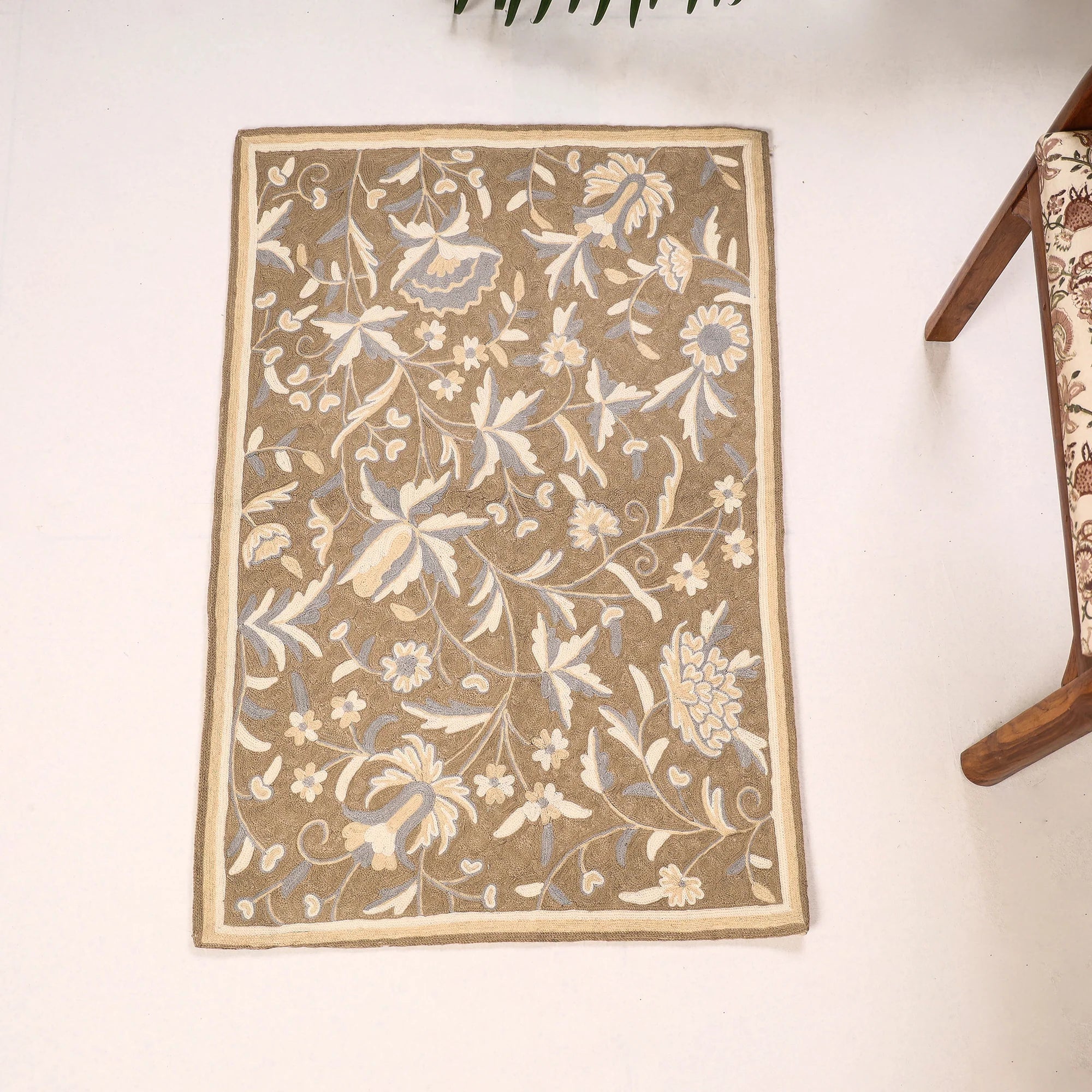
3. Moradabad Metal Craft
This GI tag handicrafts in India got its GI tag in the year 2013. Moradabad city in Uttar Pradesh is famous for its brass work and is also known as Brass City. Various brass artworks showcase the state’s rich diversity, culture, legacy, and history.
4. Bastar Dhokra
The traditional Indian craft has been acknowledged as the geographical sign of Chhattisgarh in the year 2013 because of its distinctive approach. This GI tag handicrafts in India belongs to the Harappa and Mohenjo-daro civilizations. It is created using 27 detailed steps without any moulds, which sets it apart from Dhokra crafts produced in other regions of the world.
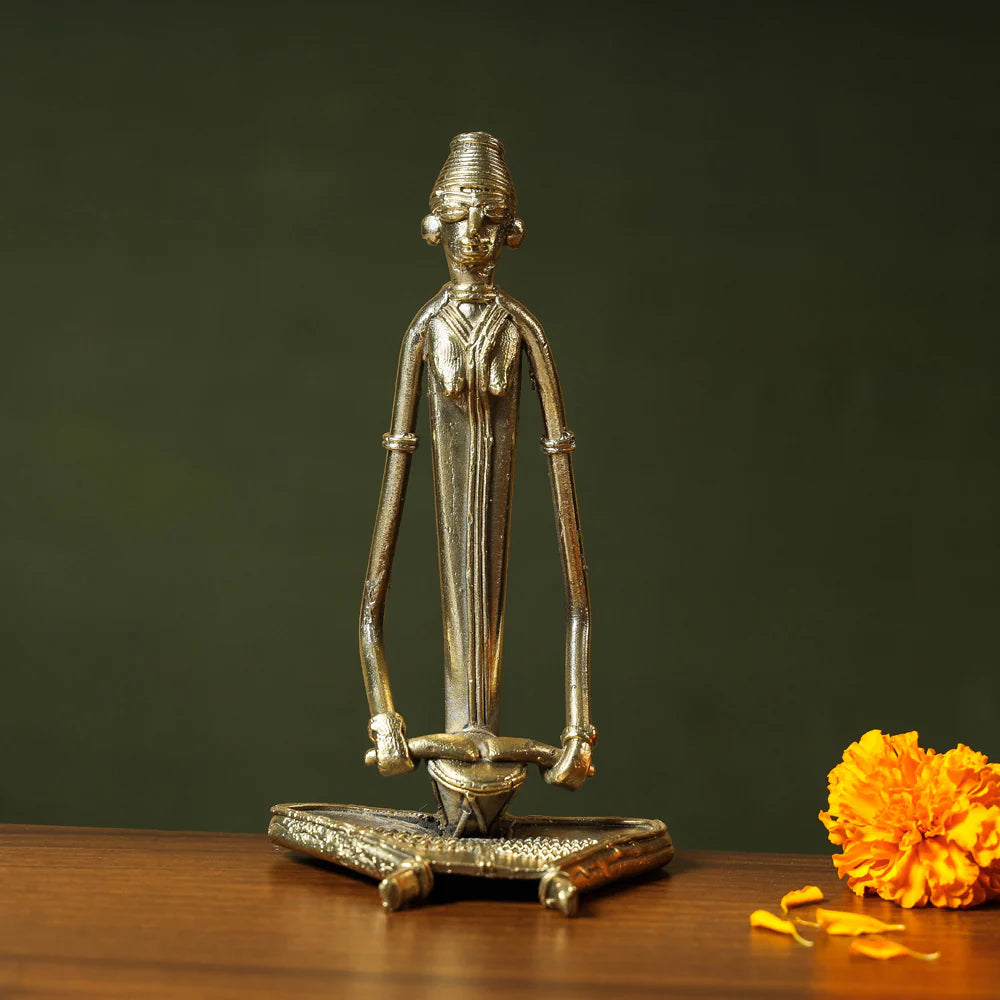
5. Sambalpuri Bandha Saree & Fabrics
The warp and the weft of a Sambalpuri sari are tie-dyed before weaving, making it a classic example of a bandha (ikat) sari. The sarees depict images of flora and fauna or geometric patterns. Handwoven by skilled artisans of the Sambalpur district in Orissa, this unique traditional craft of India got its name in the handicraft GI tag list in the year 2012.

6. Bhagalpur Silk
Also known as "Tussar silk", the Bhagalpur silk from Bihar is known for its extraordinary quality and one-of-a-kind flexibility and adaptability. These features of the Bhagalpur silk made it to the GI tag list of the year 2012. It is also known as the "queen of all fabrics." Each strand depicts India’s rich culture and heritage.

7. Bagru Hand Block Print
The distinctive use of natural dyes and hand block printing in the Bagru hand block print of Rajasthan is what sets it apart from others. Bagru hand block print themes are typically derived from diverse vegetation and are fundamental. The famous art of Rajasthan got its GI tag in the year 2011.
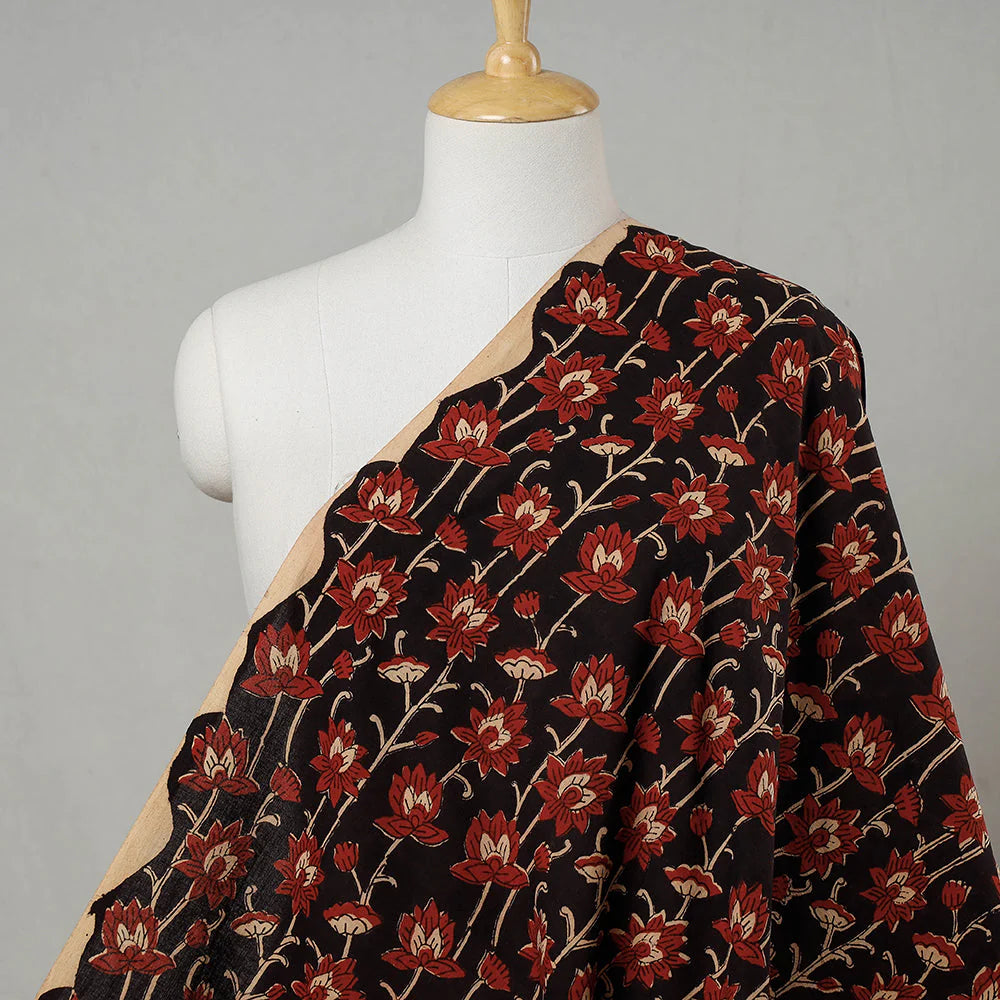
8. Baluchari Saree
The West Bengali is the origin of the Baluchari Sari. Representation of mythical motifs on the sari's pallu is what distinguishes it. It takes approximately 1 week to make a single saree. The Baluchari Sari received a GI tag in the year 2011. It is one of the most loved GI tag handicrafts in India from West Bengal.
9. Paithani Sarees and Fabrics
Made in the Paithan town of Aurangabad district, the Paithani sarees are known for their oblique square patterned borders and a padar with a peacock motif. They got their GI tag in the year 2010. Single-colour and kaleidoscope-coloured patterns are also some of the famous types of Paithani sarees.
10. Cheriyal Paintings
This handicraft of India is a stylised form of Nakashi art that is full of regional elements unique to Telangana. The Cheriyal paintings illustrate a narrative style, akin to a film roll or a comic strip, and they tell shorter stories from the Puranas and Epics that are closely related to Indian mythology. This art form made it to the handicraft GI tag list in the year 2010.
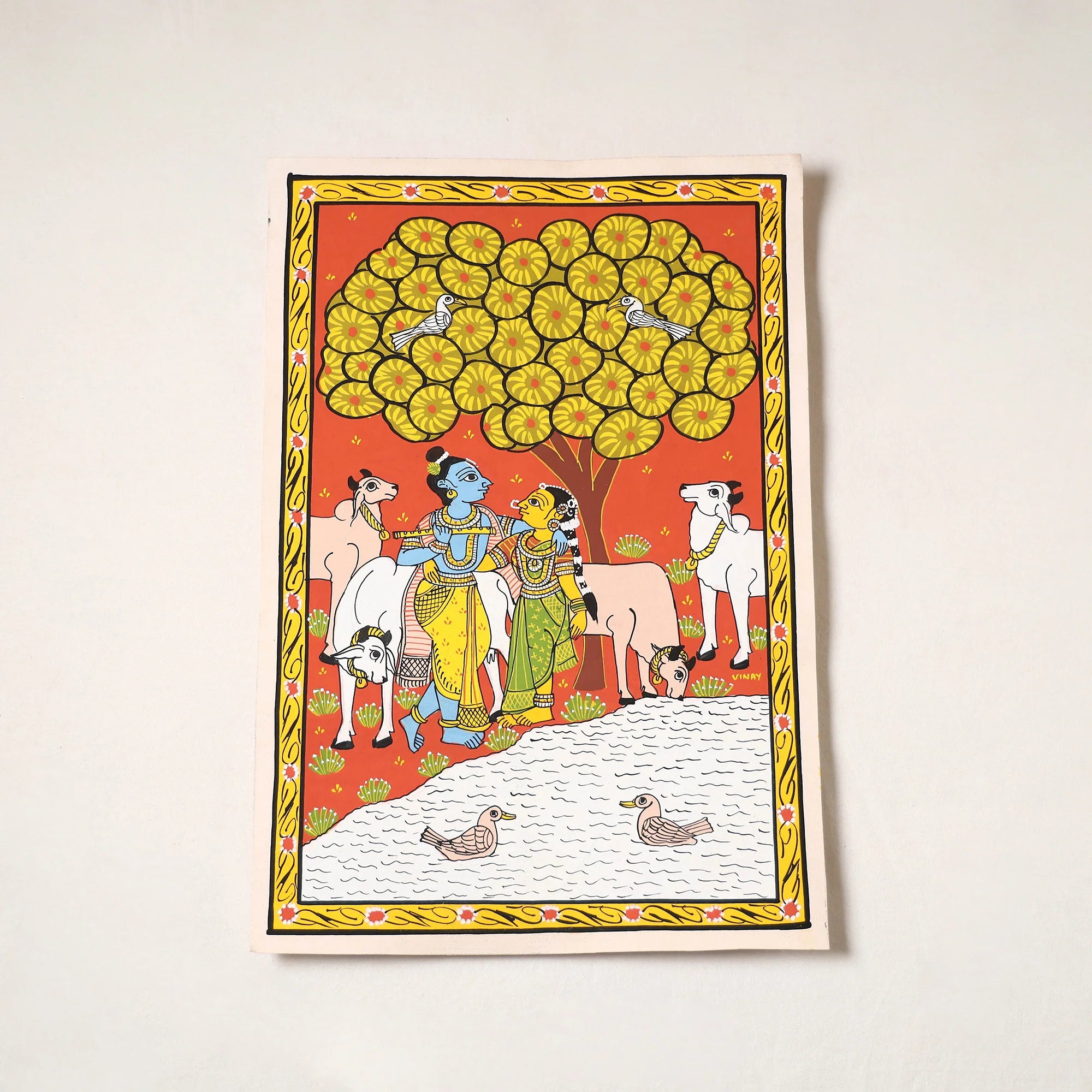
11. Blue Pottery
It is among the most famous GI tag crafts in India Rajasthan got its GI tag in the year 2008. This traditional Indian craft draws strong influence from Perian ceramics but has its own unique designs and themes. The Blue Pottery is richly decorated with animals, birds, and flowers along with a trace of Persian geometric design.
Gi tag handicrafts in India need no explanation. They are beautiful, and detailed and exude the country’s rich culture. However, it is important to remember that those products that capture the essence of a place should be preserved and given full protection from any kind of infringement. That’s the reason the handicraft Gi tag list was introduced to India.
If you are an admirer of India’s rich heritage and want some pieces of these unique traditional Indian crafts to adorn yourself or your home, then check out the excellent collection of Gi tags crafts of India from iTokri today itself!
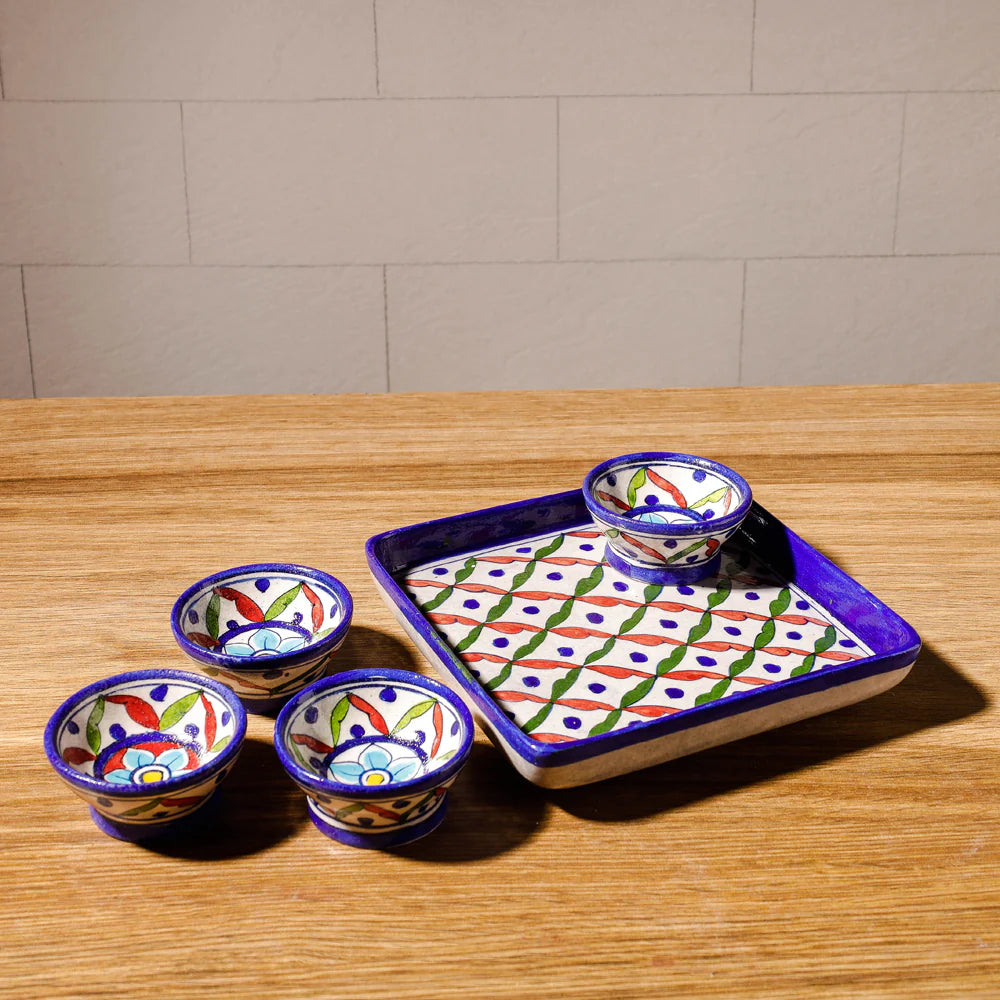
12. Chanderi Silk Saree
Check out the exclusive collection of handmade Chanderi Silk fabrics online, perfect for anyone with a great sense of style. You can also shop for beautiful Chanderi Silk stoles for women and scarves to match your outfit at iTokri. If you're searching for Chanderi Silk dress material, you can find designer suits and dresses made from this authentic fabric.
Beautify your suits and traditional Indian dresses with stunning Chanderi Silk dupattas for women. You can also explore traditional Chanderi Silk crafts to give your home a special, classic touch.
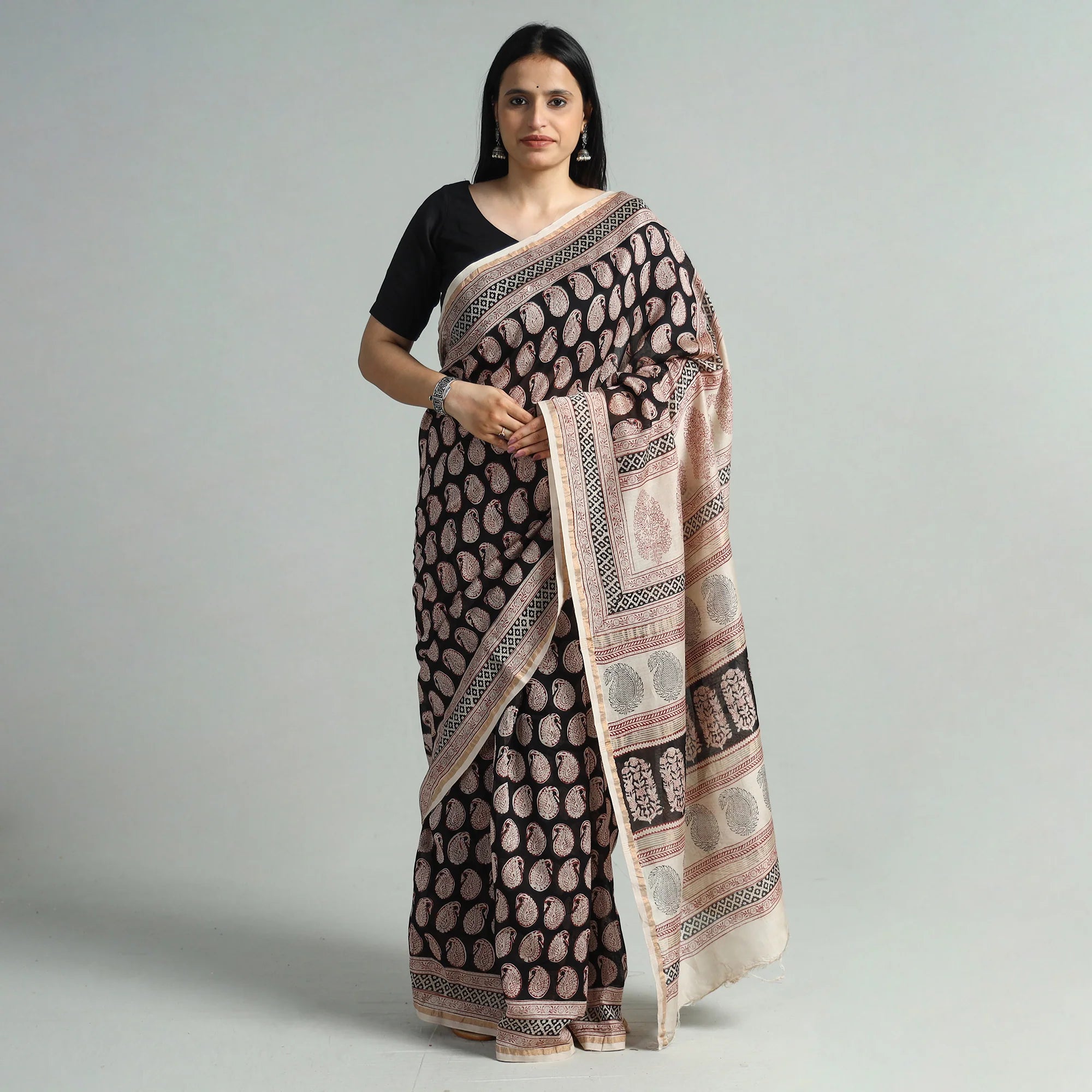
13. Channapatna Toys
Channapatna toys add a modern touch to home decor with their vibrant colours and wooden carvings. These versatile toys are perfect for both children’s playtime and as decorative pieces. iTokri offers a wide range of affordable handmade Channapatna toys that are eco-friendly, non-toxic, and safe for kids. Buy these unique Indian handicrafts online at iTokri for a personal and colourful addition to your home.
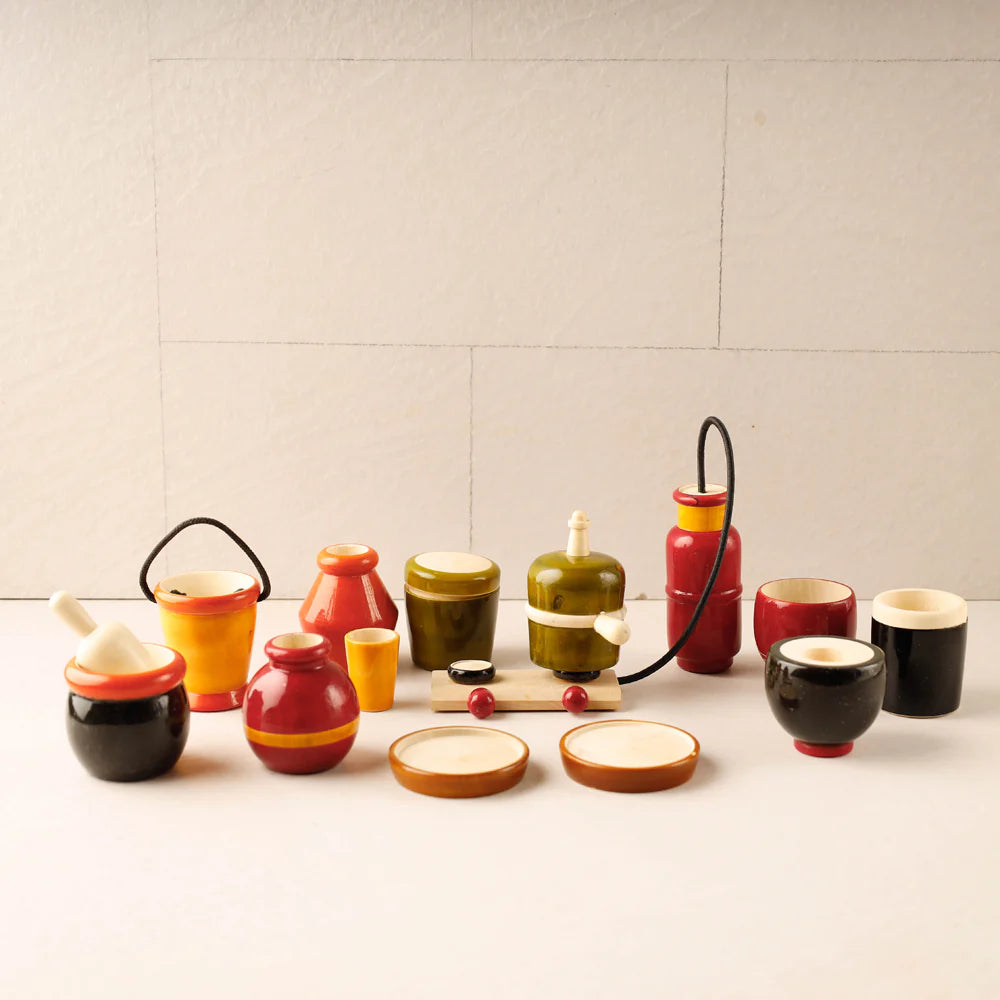
14. Kanchipuram Silk
Kanchipuram fabric, whether silk or cotton, is deeply rooted in South Indian culture. It is commonly used in traditional ceremonies, weddings, and religious rituals, representing purity, prosperity, and reverence for tradition. Beyond being a fabric, it carries cultural significance, serving as a symbol of heritage and sacred practices. Whether you are looking for Kanchipuram silk sarees or fabric material for your handmade bags or cushions, shop at iTokri to experience the royal essence of this historical fabric.
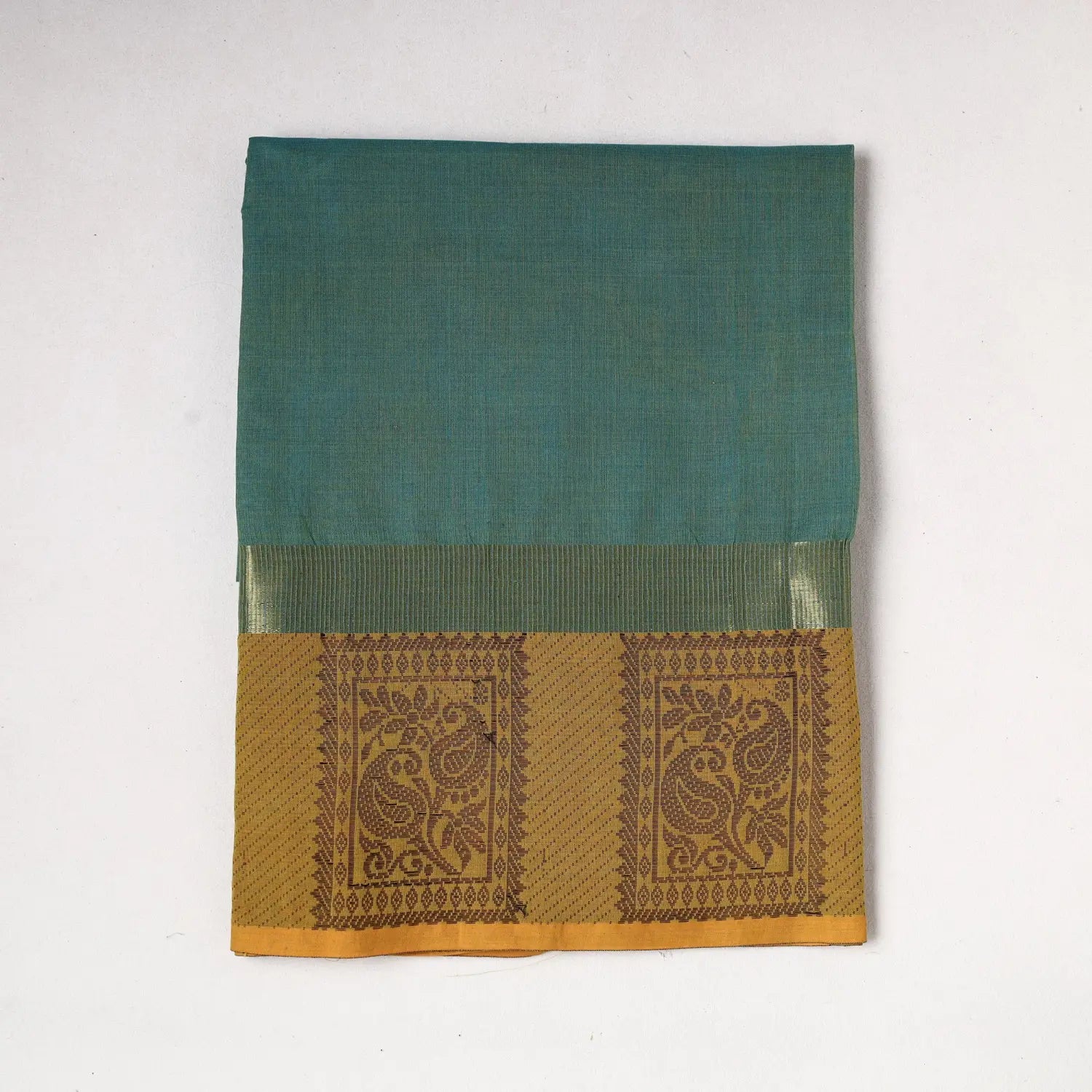
15. Madhubani Painting
India is a beautiful blend of heritage, culture, and art, with a rich diversity and tradition. Among its many art forms, Madhubani, or Mithila painting, stands out for its charm. These vibrant paintings add beauty and life to your space, which creates an atmosphere of peace and elegance. Madhubani art brings a touch of class and timeless sophistication to your home decor. Elevate your interiors with iTokri’s rich collection of Madhubani Painting online.
Also, shop for our premium collection of shirts for men that are made with natural dyes.
Frequently Asked Questions on GI Tag Handicrafts of India
1. What is a GI tag?
Geographical Indication, often known as a GI Tag, is a designation or sign given to a particular product that has a special connection to geographic areas.
2. How many handicraft items have a geographical indication tag in India?
As per the latest stats, approximately 209 handicrafts have got geographical indication tags in India.
3. Which crafts got a GI tag in 2023?
In the year 2023, 5 handicrafts from Madhya Pradesh received the geographical indication tag. The craft that got GI Tag are.
4. Why are GI-tagged handicrafts important?
GI tag handicrafts in India are important for protecting regional value, preserving cultural heritage and traditional practices. It is also helpful in developing local communities to ensure authenticity and trust for both products and customers.
5. What are some popular GI-tagged handicrafts in India?
Some popular GI tag handicrafts in India include Madhubani paintings, Channapatna wooden toys, Muga silk from Assam, Kalpi handmade paper, Chanderi silk sarees, Kanchipuram silk and much more.
6. How does a GI tag benefit artisans and buyers?
The presence of a Geographical Indication (GI) tag helps artisans by ensuring their rights are protected under the law, adds value to their goods, and market their products, while helping buyers know they are getting quality products that are authentic. Gi tags develops confidence in the consumers, and supports local traditions.
7. Where can I buy GI-tagged Indian handicrafts?
To buy Gi tag handicrafts in India or traditional crafts of India, iTokri is the right place for you. We are one of the leading brands that is on a journey to glorify Indian craftsmanship and handcrafted crafts and clothing. You can explore a number of Gi crafts such as Kanchipuram silk, Channapatna wooden toys, Madhubani paintings, kitchen ware, dress materials, fabrics, etc.
 Verified Purchase
Verified Purchase






























Rajeshwari
Liquid error (sections/custom_blog_posts line 652): The format option 'month_day_year' is not a supported format.
I am writing from kerala. We have many Gi tagged crafts here, one of them is Kasaragod sarees. I am a researcher and faculty at IIM kozhikode and I did an ethnographic work with Kasaragod sarees society. They have a few issues like supply and demand side imbalances, sometimes facing labour issues (lack of skilled labourers) and other times lack of demand. Will you be interested to be in touch in anyway?
I am anyways a returning (addicted) customer of Itokri, so please feel free to respond